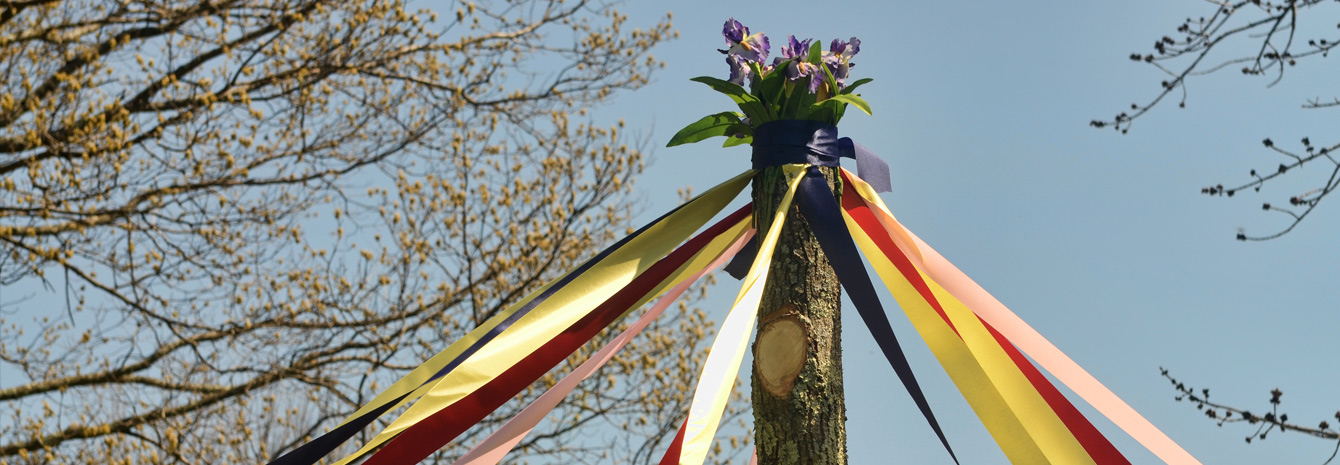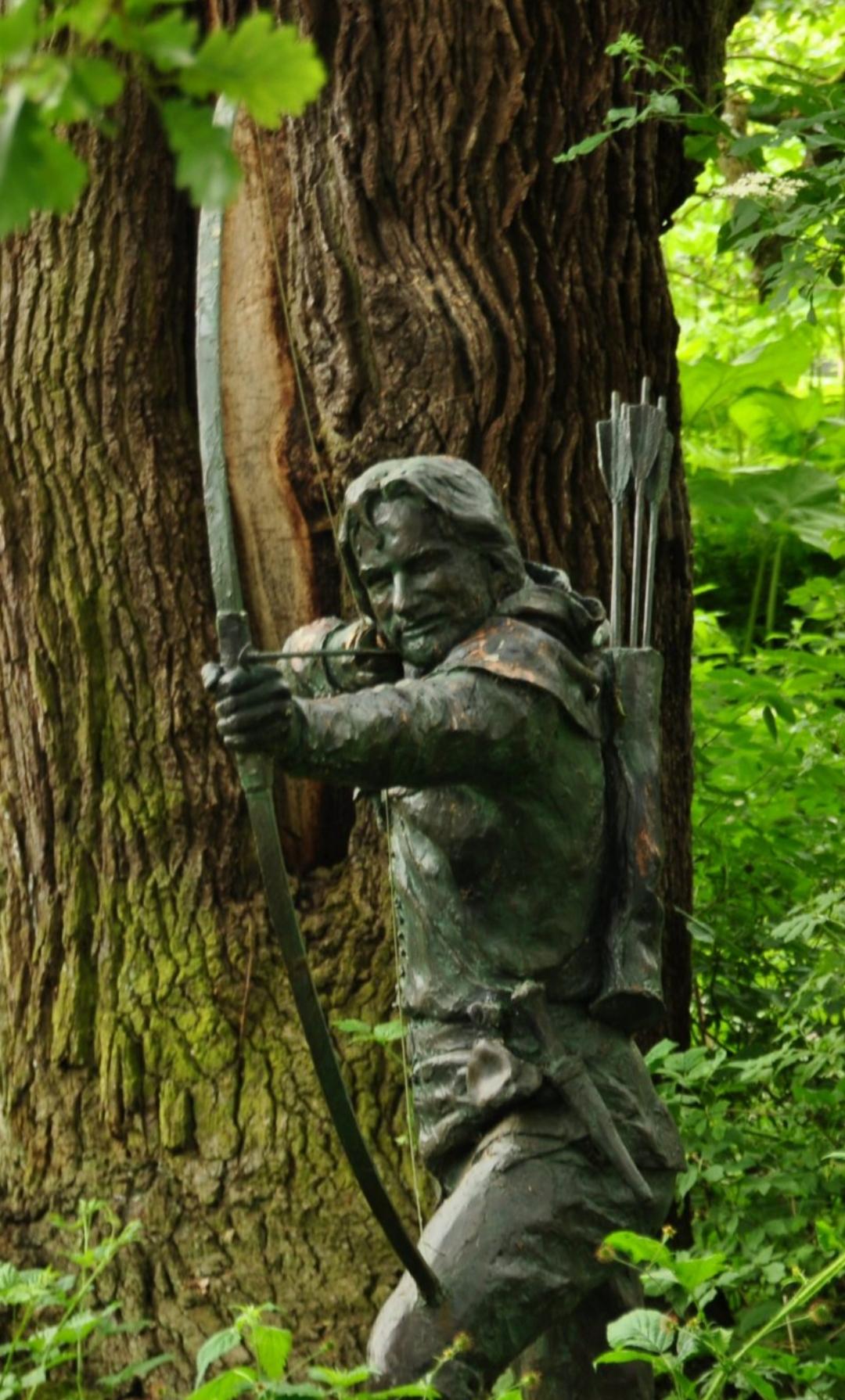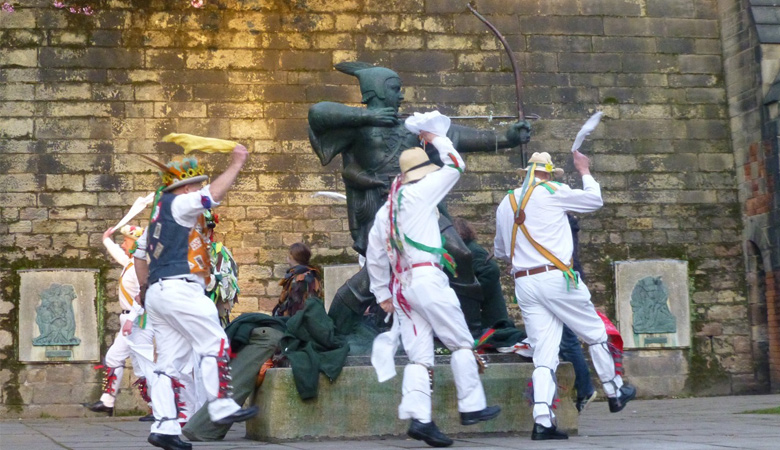No other aspect of the history of the Robin Hood legend deserves more notice than the hero’s participation in the May Day Games.
May Day Games and the Robin Hood Legend
Robin Hood ballads reflect the discontent of ordinary people with political conditions in medieval England. They were especially upset about new laws that kept them from hunting freely in forests that were now claimed as the property of kings and nobles. Social unrest and rebellion swirled through England at the time the Robin Hood ballads first became popular. This unrest erupted in an event called the Peasants’ Revolt of 1381.
The earliest known mention of Robin Hood is in a ballad called Piers Plowman, in which a character mentions that he knows “rimes of Robin Hood.” This and other references from the late 1300s suggest that Robin Hood was well established as a popular legend by that time. One source of that legend may lie in the old French custom of celebrating May Day. A character called Robin des Bois, or Robin of the Woods, was associated with this spring festival and may have been transplanted to England—with a slight name change. May Day celebrations in England in the 1400s featured a festival “king” called Robin Hood.
Dressing up as the medieval social justice warrior was among young Henry VIII’s favourite pastimes.



— Tim
